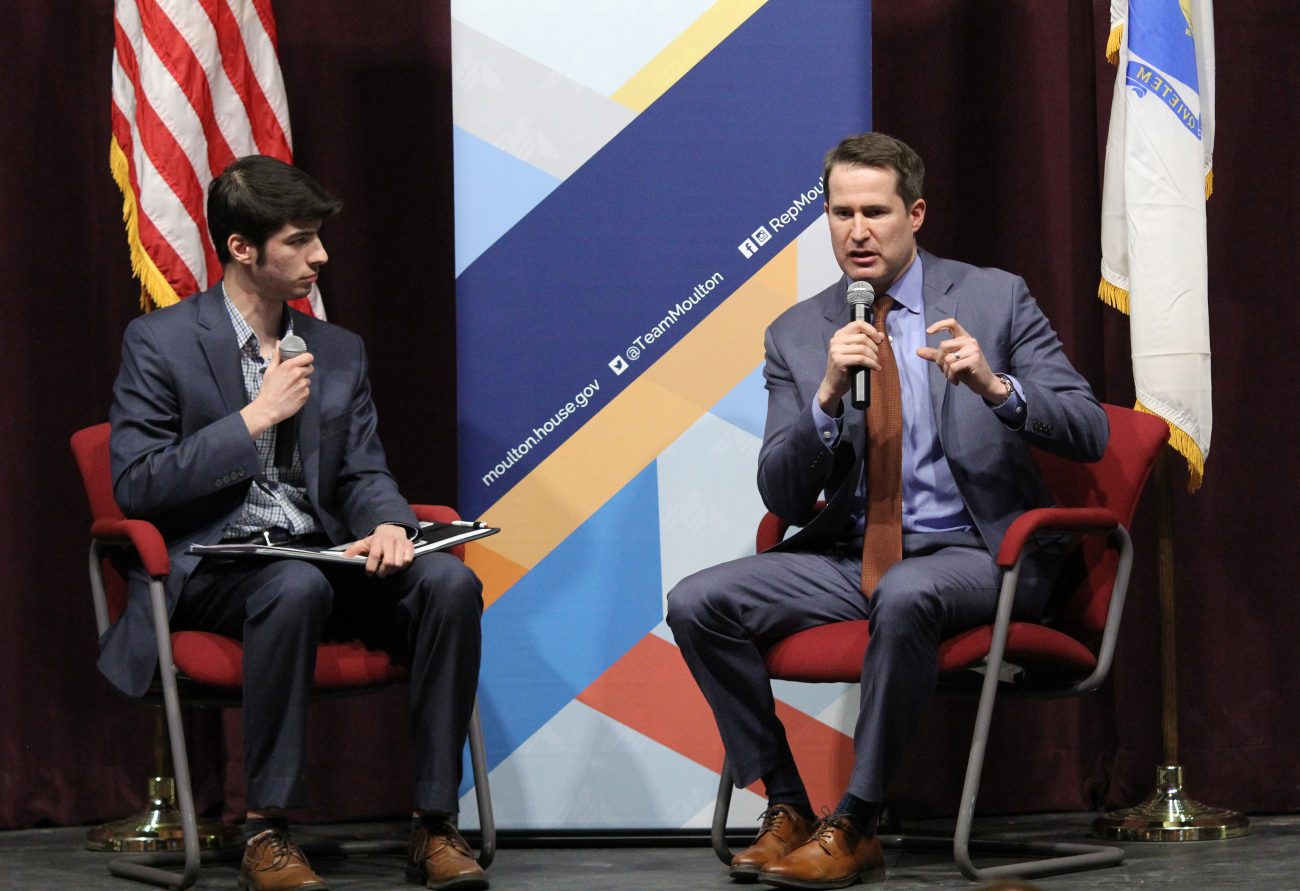SALEM — U.S. Rep. Seth Moulton (D-Mass.) told a room of Salem State University students on Monday that the $10.9 million increase for state universities in Gov. Charlie Baker’s state budget proposal was “nowhere near enough.”
Under the fiscal year 2020 budget proposal, if approved by the state legislature, funding for state universities, including Salem State, would increase to $273.5 million.
“That’s not even close to enough,” Moulton said. “When you look at the backlog of state universities and state colleges just in Massachusetts, it is hundreds and hundreds of millions of dollars, so an increase of $10 million is a pittance.”
The funding for higher education overall, including the University of Massachusetts system, state universities and community colleges, would increase by $57.1 million over FY19, for a total budgeted amount of $1.13 billion, according to the state budget.
“What’s our excuse” for not investing more in education, Moulton asked, when discussion between Congress and the presidential administration is centered around President Donald Trump’s proposed $5.7 billion border wall, as a second government shutdown looms.
“This is not what we should be spending our money on right now,” Moulton said. “I don’t think Washington is doing enough to support students. There is no more important investment we can make in Washington than investing in education.”
Moulton delivered his remarks at a Town Hall forum at Salem State University, moderated by Salem State student, Paul Wilkens, a political science major who helped organize the event.
The focus of the forum was the future of the economy and the role education plays in it. The event was heavily overshadowed by Moulton’s announcement that he was seriously considering a run for president, something he had repeatedly denied in recent months.
In addition to answering prepared questions from students delivered by Wilkens and fielding ones from students during an open Q&A session, Moulton criticized Trump throughout the event, saying the president was “playing politics with people’s lives,” referencing the record 35-day government shutdown.
He addressed the “chaos” of the political situation in Virginia — Gov. Ralph Northam and Attorney General Mark Herring have acknowledged wearing blackface in the 1980s, and Lt. Gov. Justin Fairfax is accused of sexual assault by two women. There’s no room for racism and sexual assault in politics, he said.
Moulton also opposes changes to how colleges and universities would handle complaints of sexual misconduct proposed by Secretary of Education Betsy DeVos, which would add protections for students accused of sexual assault and harassment.
“She’s made it pretty easy because you just have to oppose everything she does,” he said. “She’s moving us backwards and that’s not how we meet the challenges of the new economy.”
As more jobs are becoming automated — Moulton said half of the jobs that exist today will be gone by 2040 — the congressman said the focus for students should be on finding jobs that serve as a steppingstone after college, rather than one they’ll hold for the long term.
He called for more availability at vocational schools, as many high-paying jobs are from skills learned at those schools, and having an education system that produces students or re-educates an older generation to keep up with changing technology.
Student loans, a major concern for college students, were discussed, with national student loan debt hitting the $1.5 trillion mark last spring.
The fundamental problem with college loans is that the cost of education keeps increasing. If the state and federal government were to invest more in public education, that would drive tuition down and promote competition from private colleges, he said.
Information from the Associated Press was used in this report.

